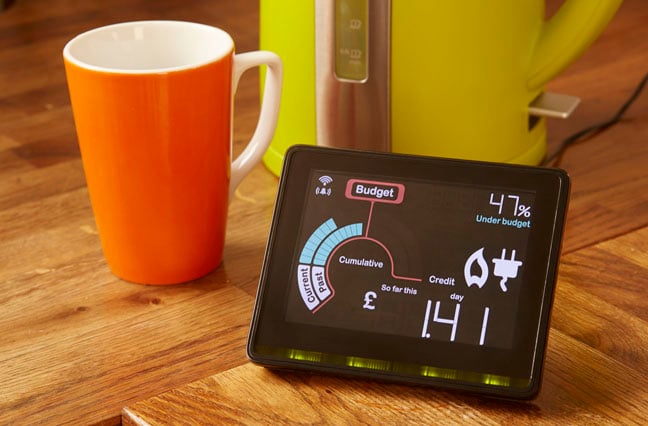Probably worth noting, this article is about UK energy meters. Also, smart meters are wildly different all over the world.
Where I live, the meters have a proprietary wireless receiver, with its own frequency, that is owned and operated by the power company.
It’s going to vary, even within counties. A lot of US utility companies are having the same issue, and there are companies that make and sell 3G to 4G adapters for larger coverage areas. For example, microcell that rebroadcasts/converts the 3G signals into a 4G signal for the local towers. Other areas are swapping out 3G for 4G or Lorawan style meters.
And I’m sure even more are just going to arbitrarily create billable usage figures because they outsourced their IT to India, and then outsourced the India team to Pakistan or the Philippines, and then fired them because the CEO’s son is really good with computers. Unfortunately, he’s just now reading my comment and going “oh…fuck”.
How would those microcells be legal? It’s not just that 3G or whatever gets shut down, the frequencies are usually reallocated to something else so you can’t legally operate a 3G network on those frequencies anymore.
It would depend how regulations are written. It’s perfectly conceivable that these can be allowed to operate using a very low power level that wouldn’t interfere with the larger network, especially if the use case is for things like substations that are already isolated.
Around here (Portugal) I believe that smart meters send their info over the electrical wire itself (as they had to install repeater/transponder stations at the network transformers and the bandwidth needed for something like this is ridiculously small).
Certainly it would be an upside of being behind most of the rest of Europe in most things - when finally something gets installed in the infrastructure of one of the local politically connected (read: not really competing on superior quality or efficiency) utilities, the technology is already more mature.
Are you from Germany?
It’s common all over Europe. It’s short range wireless btw, a person from the company has to walk the building halls to collect the data from the meters for example, or come near the house. They use this on all types of meters — power, gas, water.
They still have to do a visual check once in a while because some people are shifty fuckers and can’t be trusted. 😄
US
deleted by creator
I thought they weren’t turning off 2G. What’s the benefit? Other than forcing it sooner? Most places that used 2G still get exceptional coverage from it.
Coverage is from frequency, not generation of signal encoding.
The benefit is you can reuse the frequency bands for something better, like 5G. That’s what they did in my country, among others. So, now we get 5G on 3 different frequency ranges. High speed and long range.
I was under the impression that higher bandwidth wireless networks required higher frequency bands for that data. Like a specific frequency should have a theoretical maximum data transfer rate and the only way to get around that would be some kind of fancy compression algorithms.
That is correct.
However the lowest GSM frequency was 300Mhz, so there is still quite a lot of bandwidth there (if I’m not mistaken to a theoretical maximum of 600Mbit/s for a 2 level signal, though in practice quite a lot less as this are radio-waves rather than signals in circuit lines, so encoding schemes have to be disgned for a lot more noise and other problems).
Anyways, the point being that the right encoding scheme can extract some Mbit/s from even the 300Mhz band.
Frequency isn’t that relevant, it’s frequency bandwidth. The bit rate is n/T with n being bits per symbol and T symbol duration which itself is 1/B with B being the frequency bandwidth. You want to increase the bit rate you can either increase the number of bits per symbol or increase the frequency bandwith. 5G allows bandwiths up to 400MHz per channel, there isn’t enough space in the lower frequency ranges for such large bandwidths, so you go up.
Isn’t the infrastructure for 2G also a factor? Over here for example we have lots of towers in remote mountain regions, rather complicated to upgrade all of them. It can be done but it will take a while.
Not complicated at all. For the most part, all they do is swap one box - the transmitter. That’s it.
(However, that doesn’t consider other things, like improvements in redundancy and safety, or construction standards that didn’t exist back then.)
But really, all that needs to be done is pull out one box, and slide in a new box. Not complicated at all.
I’ve done this as a project to go from 3G to LTE for a network of a few hundred devices.
3G and LTE (4G) used almost identical AT commands. The motherboards were build so the modems were swappable. It wasn’t too bad. I’m told the field techs had to drive 5 hours across the Australian outback to access some of them.
After rolling out 3g router fail over for pokies, lotto, wagering in Oz I’m sure the money they saved from no longer having any downtime can pay for 4G, 5g, and starlink redundancy.
5 hours of driving across Oz? Wouldn’t even make Carnarvon Gorge much less Mount Isa.
Beautiful country to drive across tho.
One of those places was Mt. Isa. It was equipment for mining.
I was wondering how this would affect car manufacturers and their TCU’s or what have you. Curious to know if cars will be bricked when this is obsolete and they turn off 2G and 3G.
My 2013 Focus Sync 2 software that does system checks shit down like 6 years ago and I periodically get a message that I need to do a diagnostic check and send it in to Ford, but then it errors out.
It’s annoying as fuck.
Is it one of the ones where you can update the software from a USB stick and software off the internet or does it have to do with looking for a software update then timing out because the network isn’t there?
I was wondering my previous question because I know Mozilla just put out a report on how if you own a newer car your automaker is tracking you via the modems built into the cars.
It is actually dumber than that.
It wants to use my phone to make a call and transmit the data like an old school modem. There’s not built in modem in the car as far as I can tell. It’s a 2013 Focus Titanium.
And it can’t because
new phones don’t use 3G?cell providers shut down 3G services in 2022?No, because whatever back end service ford used, ford shut down.
oh our water company mentioned they were gonna come this week and replace the meter. I guess this is what thats about lol
This article is about UK energy meters.
It’s possible they’re in the UK
INCONCEIVABLE!
NZ and many other places are doing energy meter replacements (or just modem replacements in the existing meters) due to 2G/3G switch off.
I don’t think anyone does cellular water meters, though. Cellular needs a decent amount of power which is too much to expect from either a ten year battery or trying to use the metering hardware as a generator.
Smart water and gas meters therefore generally use a short-range low power mesh radio system.
Aren’t water systems typically installed alongside electrical systems though? Seems like powering the meter should be a non-issue in most circumstances.
Water meters are installed in a variety of places - while some might be in the building, plenty will be in a pit at the street.
Even if it’s in the same building, you now have the builder/homeowner’s electrician needing to supply power to the meter that could be on the other side of the house from the electrical service. Should it be supplied from a dedicated circuit for reliability? If it’s a retrofit, who pays for the wiring - and plaster/paint for the walls if it wasn’t an easy run?
What if the owner turns the power off and goes away for a month while leaving the garden sprinklers on? Is that OK?
Electrically powered electrical meters work fine because if the meter isn’t powered, nothing else is anyway. And it has to have all the safety and mechanical features for permanent connection to and safe usage of mains power, which adds substantially to the cost.
Trivia: the energy consumed by electric meters is not negligible, though it’s fairly small. The meter is designed so that it does not measure its own power consumption - the power company pays for that, not the customer. Should the customer pay for the water meter’s electricity consumption.
Extra trivia: A suitably efficient turbine could provide the watt or two of power a meter needs to transmit by leaking about a teaspoon or two of water down a drain.
Surelly they would’ve used the word “wankers” or “cunts” when refering to the water company if they were???!
(Or maybe “those wankers at” is always implicitly prefixing “the water company”)
True, but I was saying that because it’s about energy meters, not water meters.
There are many devices that use 2g for data, not just energy meters. ATMs, card payment terminals, alarms, gps trackers, all sorts of qpplications that don’t need a lot of data and can benefit from the better coverage/range of 2g.
that doesn’t mean the problem is exclusive to them
Yep. I’ve been going around converting burglar and fire alarms to 4/5G and trashing the 3G radios. If you haven’t upgraded, your alarm won’t alert your monitoring company if that’s the sole path.
That’s why they should never switch off 2G.
All the other G’s are unimportant.
1G is important. Most emergency services are based on it.
How so?
2G defines basic mobile services, for example telephone or SMS.
3G, 4G etc. added internet to it, but there they are interchangeable. Each new one replaces the former if you use only the internet service. But none of them replaces 2G fully.
It’s more that all should be backwards compatible, so if you have 5g then you still have 2g and it gives you the bare minimum voice and some scraps of data.
They can reclaim all the spectrum for 3 and 4g (which is a lot) for 5g, while leaving some of the barest functions working for stuff that doesn’t need real data.
You can read in the spec why they chose not to be backwards compatible. The cons were too great.
The radios almost always are, the number of bands got ridiculous.
Yeah that’s what happens when you increase the number of symbols in a frame.
Nice thought, but 5g does not have the same range.
5g low band actually does, they have down to 600mhz bands which are crazy low with tons of noise shaping, mimo, beamforming and other stuff to potentially bump the snr.
They’re looking to add 400mhz bands for even more range, but the low bands have less capacity.
Woot, free parking
Is it a swap of the 2G/3G module? Or is it a full replacement of the meter?
Probably depends on the meter model. Ours was just a modem swap in NZ.
I’ll be fucked if I’m getting a smart meter anyway, I’ll stick with nice normal top-up prepay meters thank you kindly.
I don’t trust British Gas as far as I can throw em.
Pre… pay? At your own house?
It’s relatively new and is a lovely way for utilities companies to side step the rules on cutting people off. They advertise it as an option for people so they have more control over their spending when in reality it has a higher unit charge and is targeted at people who are likely to be financially struggling or close to it.
So what happens is it can just shut off when you haven’t paid yet. I work in utilities and I have dealt with literally thousands of homes and these are always in impoverished and working class areas where if the people were to be on a standard policy they would have protections against cut off due to non payment.
This isn’t meant as any disrespect to the guy above, I know two sentences about him and that all, just my view of this bullshit.
Yeah I don’t think it’s new just something you only see in poor areas, it’s of course the most expensive way of getting electricity too because they love rubbing a bit of salt in when they screwing the poor.
I remember going to my friends house, the power shut off Saturday night and the post office didn’t open until Monday so we were basically camping in his house getting high by candle light.
Post office?
You had to pay there to charge your card
In some places, you pay for utilities before using them, and they shut you fuck off right in the middle of the month if you’ve used it up. :/
It’s literally a coin operated meter or voucher system inside the house that you top up like a phone
Only some phones, in the usa most people have post pay plan
Same here but the analogy stands
I would not want to miss the feeling of getting up at 3 am to put a farthing in the meter to keep the room above freezing.
deleted by creator
I just wish our meter had a P1 port like they did in some countries
They should have stuck with the mechanical meters. They are reliable and last nearly forever.
Mechanical meters are terrible for tracking real time consumption and managing the grid efficiently. They also pay for themselves because they can catch tampering and don’t require utilities to pay people to bumble around homes to read stupid meters.
Mechanical meters make no sense. They’re a waste of money and not great for a grid that requires intelligence to help get off fossil fuels.
Also, I’m very happy with our smart meter because I haven’t gotten a single wildly-inaccurate “estimated bill” since it was installed.
Oh, I have. The meter stopped transmitting and they just started making stuff up. They did it for months and refused to admit the meter was broken.
It’s cheaper to change all the meters one more time than going back to a human driving his car from house to house to do manual readings…
Also better for the environment.
Lol no
That is the problem. Also there is no MRR with those.
But those don’t come with kickbacks!














